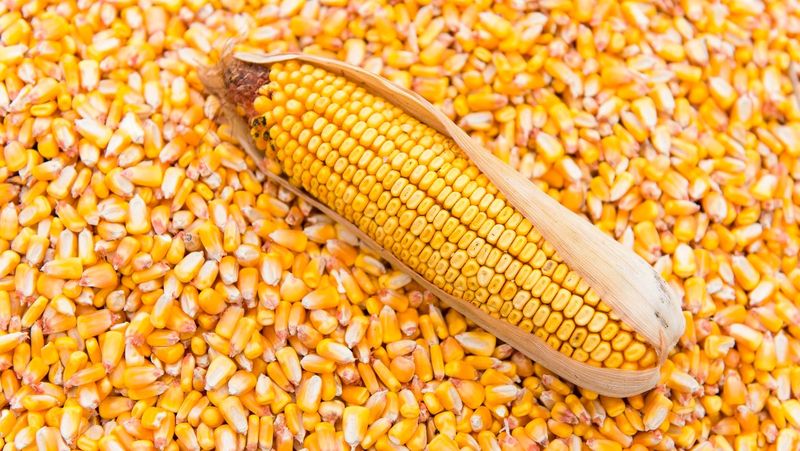EU’s corn deficit highlighted by loss of imports from Ukraine: Tallage

The European Union’s structural deficit in corn has been highlighted by Russia’s invasion of Ukraine, its main source for imports of the feedgrain, said agricultural consultancy Tallage, which expects the resultant destocking to reduce the region’s stocks to their lowest level since 2013.
“There is a structural deficit of 13.5 million mt on average between domestic supply and demand,” said Benoit Fayaud, grain and crop analyst at Tallage.
In slides that were circulated March 29, Fayaud noted that the EU’s pigs, chicken, sheep and cows will consume a combined 131 million mt of feed grains in 2021-22.
Corn’s share of the European Union feedgrain market has grown to 44% in the 2021-22 marketing year from 35% in the 2009-10, Fayaud told an audience in Paris on March 23. By contrast, the share of feed wheat and barley has fallen to 32% and 25% respectively.
The EU produced 65 million mt of corn in the 2020-21 marketing year (October to September) and required 56 million mt to feed its livestock and an additional 17.7 million mt going for ethanol, corn starch and human consumption.
Prior to Russia’s invasion, Ukraine had been expected to provide just over half of the EU’s 14.7 million mt in corn imports for the 2021-22 marketing year, according to Fayaud. While shipments between EU countries were seen at 18.1 million mt, primarily from Poland, France, Romania, Bulgaria and Hungary to Spain, Portugal, Benelux Germany and Italy.
The closure of Ukraine’s ports will boost those intra-EU shipments, leading to a decline in stocks from 3.8 million mt at the end of September 2021 to 3.2 million mt at the end of September 2022, Fayaud said.
Given the absence of Ukrainian imports, Tallage has raised its estimate for this marketing year’s imports into the EU from North America, Brazil and Argentina. It now expects the EU to take 7 million mt from those origins, compared to its earlier estimate of 5.5 million mt.
The call on South American supplies has raised additional challenges for importers in the EU, where there are restrictions on the use of genetically modified corn. The majority of Argentina’s production is genetically modified. Spain’s agriculture minister on March 9 appealed to the EU to relax its import controls, and the country has temporarily relaxed restrictions on residues from pesticides that are commonly used in Argentina.
Read also
Wheat in Southern Brazil Impacted by Dry Weather and Frosts
Oilseed Industry. Leaders and Strategies in the Times of a Great Change
Black Sea & Danube Region: Oilseed and Vegoil Markets Within Ongoing Transfor...
Serbia. The drought will cause extremely high losses for farmers this year
2023/24 Safrinha Corn in Brazil 91% Harvested
Write to us
Our manager will contact you soon



